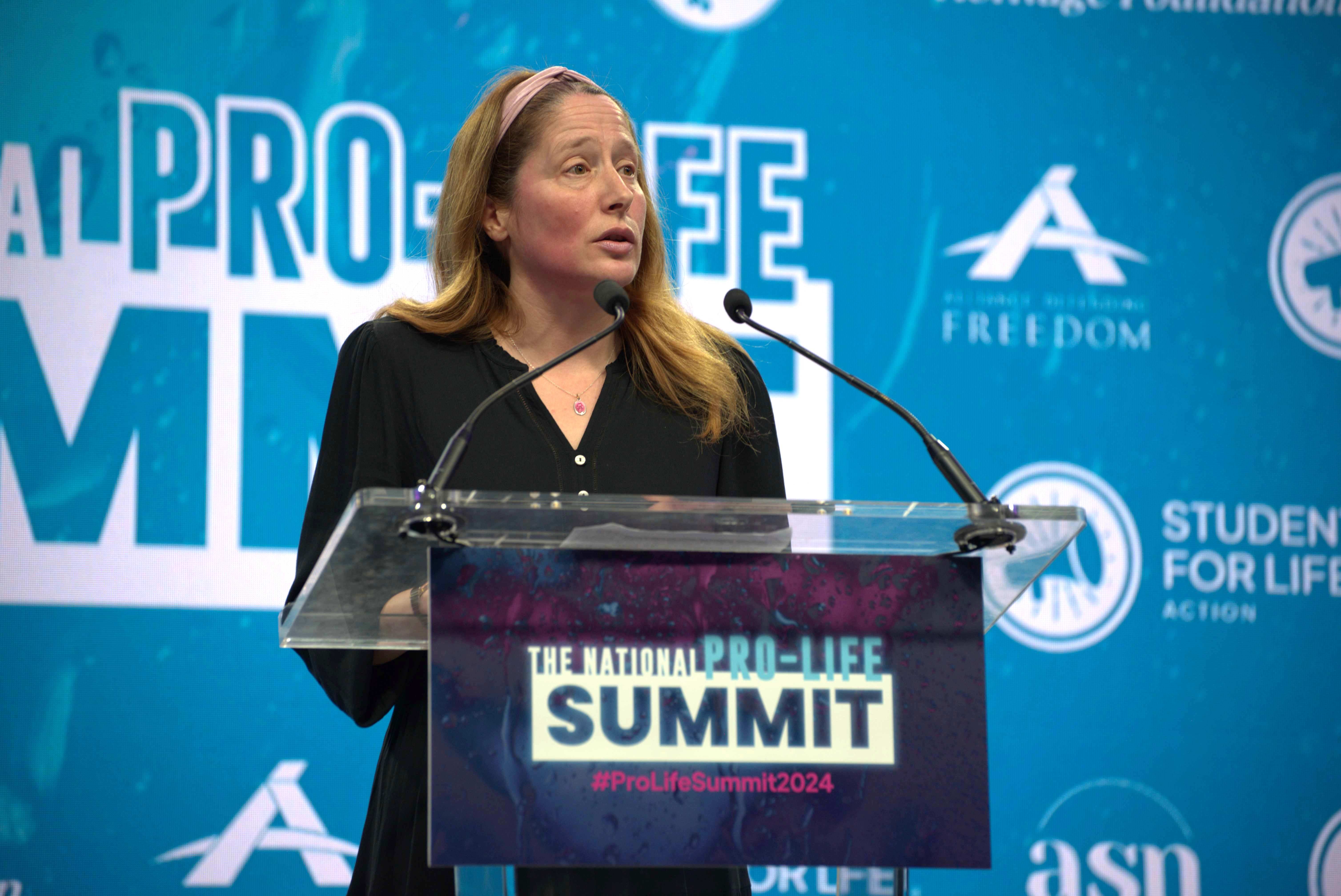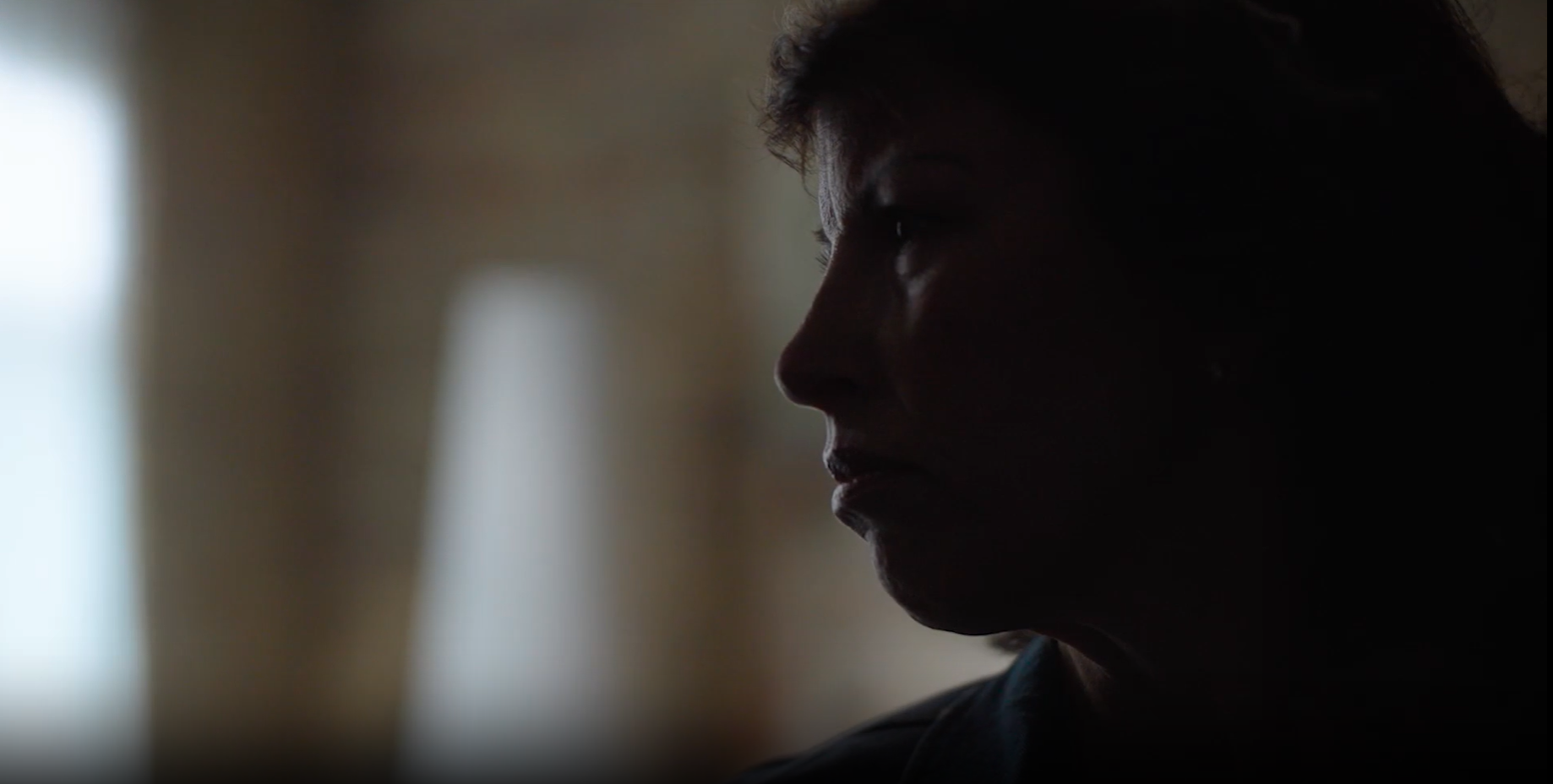Isabel Vaughan-Spruce has learned to navigate persecution for pro-life principles. Vaughan-Spruce is the pro-life advocate arrested not once, but twice and charged with “thought crime” for taking part in silent prayer outside an abortion facility in the UK. The foundation for her pro-life conviction is her faith and hope in Christ, a message she brought to the recent Students for Life of America National Pro-Life Summit.
While she was brought up to respect life, it wasn't until her teens, Vaughan-Spruce said, that pro-life beliefs really meant something to her personally.
She loved reading war stories, seeing the contrast between heroism and evil. When reading, she would place herself in those challenging situations.
“And I'd ask myself the question, what would I have done if I'd been back then?” Vaughan-Spruce said. “Would I have had the conviction to say anything? Would I have had the courage to do anything?”
“And I gradually realized I was asking the wrong question,” she said. “The only way of finding out what I would've done back then is to ask myself, what am I doing now? There's a battle going on. What am I doing about it?”
“I realized that the word ‘pro-life’ couldn't just be a label or a tag that I gave myself,” she continued. “It had to be something I lived out. In fact, I sometimes say that the only way to find out if it's more than a label is to ask yourself, if it became illegal tomorrow to be pro-life, would there be enough evidence to convict you?”
Vaughan-Spruce began to look for ways to live out her pro-life beliefs.
[Click here to subscribe to Pregnancy Help News!]
This led her to joining a handful of people who for many years had been praying for an hour a week on Saturday mornings outside an abortion center in Birmingham, England. Joining them, she had a real sense of this is where she belonged. After a few years she began a 40 Days for Life campaign there, which helped hundreds of women and couples.
“That abortion center miraculously closed down,” Vaughan-Spruce said to applause. “It was the fourth busiest abortion center in the country. And it was closing, not just moving.”
They asked the manager why it was closing, and she seemed unable to answer.
“But we knew the reason why,” said Vaughan-Spruce. “Prayer.”
So, they moved to another abortion center in Birmingham, she said, but were not received well by many of the locals.
Vaughan-Spruce recounted further:
“We were screamed at, sworn at, spat at, threatened. We had cars drive down the road towards us at high speed and veer away at the last second. We had property stolen and we were even physically assaulted when one of these assaults was caught on camera and shown to the police. The response I received was, well, if you don't want to be assaulted, you don't have to come out of your house, do you?
In fact, she said, the local police worked with the local council residents and abortion center staff to enact a local buffer zone, banning protests around the abortion facility.
“So, I got my 40 Days for Life volunteers to pray outside the zone, and just the same, they were still shouted at, sworn at, spat at, assaulted, et cetera,” said Vaughan-Spruce.
It was clear, she said, that this was not about sticking up for women, and more to do with an intolerance of any ideology different to their own, coupled with their sense of being above the law.

In this atmosphere, Vaughan-Spruce reasoned that buffer zones were bans for protesting, but she’d never protested outside abortion centers. She prayed there and offered help, but surely her prayers can't be censored, she thought.
“So, I went to silently pray outside the closed abortion center,” she said. “No posters, no leaflets, no bible, no rosary beads, just me standing there by myself, not making a sound.”
“The police arrived very quickly and asked if I was protesting,” she recalled. “I said I wasn't. And they asked if I was praying, and I said, I might be silently praying in my head, but nothing out loud. This prompted them to arrest me.”
Vaughan-Spruce was searched there on the street, taken to a police station, and locked in a cell for a few hours before being interrogated over what had been going on in her head. She was then released on bail and charged with engaging in an act of intimidating reproductive service users. The abortion center had been closed, so there were no service users. Vaughan-Spruce went to court and was acquitted within minutes.
It was now recognized that she was allowed to pray silently on the street, she said.
“And a couple of weeks later, I went back to exactly the same spot and did exactly the same thing; I silently prayed near the abortion center,” Vaughan-Spruce said. “This time six peace officers arrived in a police van and told me my prayers were an offense.”
“When I stated that I didn't believe prayer was offensive, they became more emphatic and said it was an offense and arrested me,” she said. “They took me away in a police van to the police station and placed me in a cell again. I was eventually released on bail, investigated for six months after which eventually the charges were dropped.”
“I continue to go outside the abortion center every week,” Vaughan-Spruce said. “And the police have continued to come out, giving me various tickets, telling me I'll be issued with fixed penalty notices. And in the meantime, we've had national buffer zones voted in by our government.”
This means there will soon be some kind of exclusion zone around every abortion center in the country.
Tweet This: I realized that the word ‘pro-life’ couldn't just be a label that I gave myself. It had to be something I lived out - Isabel Vaughan-Spruce
“Now, this could all sound a little bit hopeless,” said Vaughan-Spruce. “But times like this remind me of a story I once heard about, personal hero of mine, Maximilian Kolbe.” Kolbe was a Polish Catholic priest who volunteered to die in place of another man in the Auschwitz death camp.
Vaughan-Spruce shared another story about Kolbe that's not as well-known as his giving his life for the other man.
A fellow Auschwitz prisoner had said that when he arrived at the death camp, he lost hope. One day the man encountered Kolbe, who sensed his despair. Kolbe approached, placed his hand on the man’s shoulder, looked him in the eye and said, “Hope, never give up on hope.”
This started a spark inside the man, who went back to the block where he was housed and with the other men there he hatched a plan to break into the German officers’ quarters, steal their uniforms and dress up as soldiers, get the keys to the comandante’s car and drive out of the death camp’s gates in what ended up being one of the most daring escapes in the history of Auschwitz.
“And I can imagine afterwards people could congratulating this man on his ingenuity, on his courage,” Vaughan-Spruce said. “And rightly so. But it didn't start with him. It started with Maximilian Kolbe, who gave him back his hope.”
Kolbe didn't let his circumstances dictate to him, she said, he dictated hope, no matter what.
“And that's our job,” Vaughan-Spruce told the pro-life summit attendees. “Whether we're talking with women or couples who are struggling in pregnancy, those who've been through an abortion or multiple abortions, those who've worked in the abortion industry, those who say they're pro-life but feel overwhelmed by fear or the size of the task to get involved, or those who work alongside us but are experiencing some battle fatigue.”
“If we want to provide any influence in these situations, we must first become people of hope,” she stated. “He who holds the most hope, holds the most influence.”
“And I'm not talking about the kind of hope that says, ‘I do hope things improve,’” said Vaughan-Spruce, “but a hope that truly believes they win because it's a sure hope founded on our savior, Jesus Christ.”






